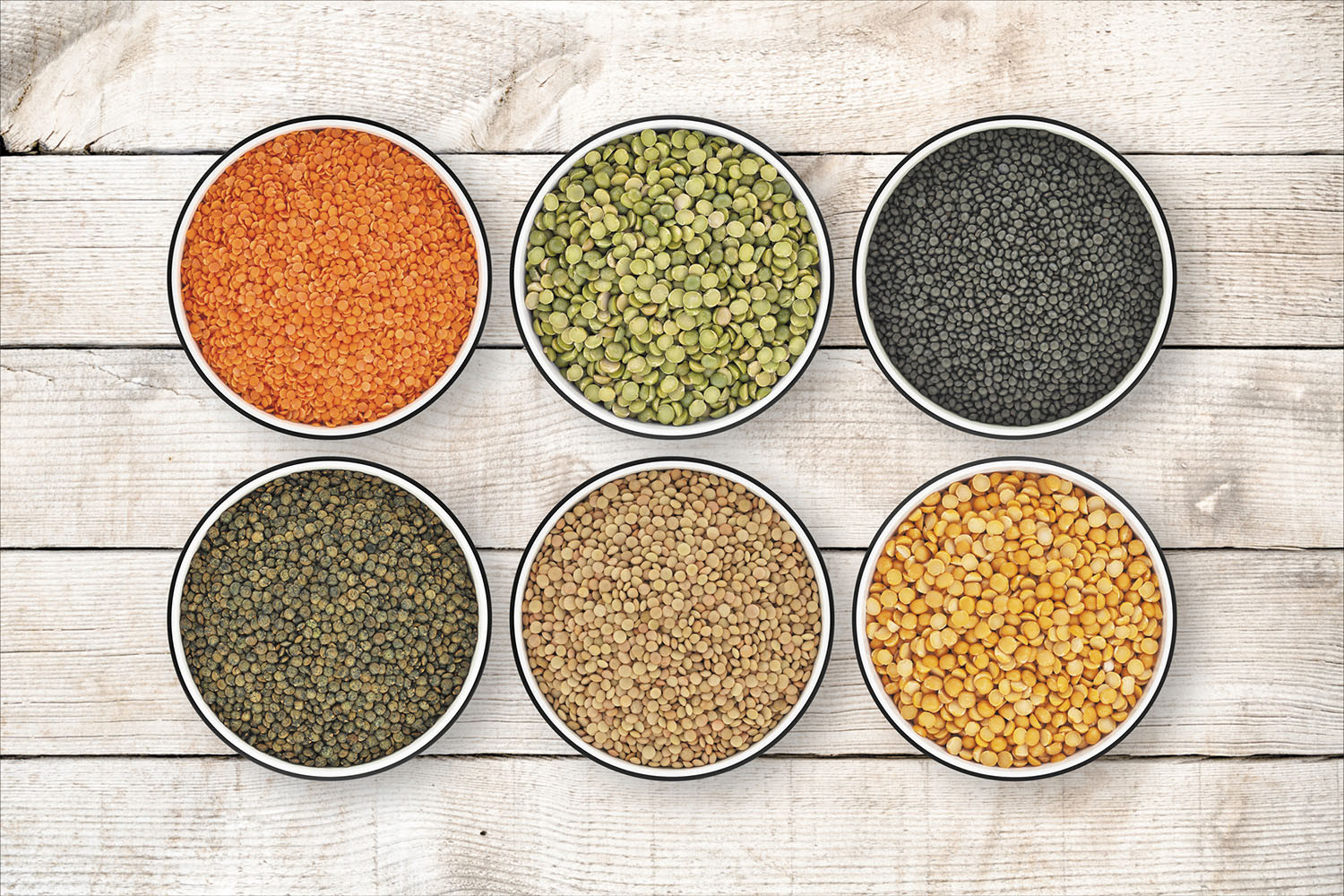
Counting steps is good — is combining steps and heart rate better?

Appendix pain: Could it be appendicitis?

Can saw palmetto treat an enlarged prostate?

How does Ozempic work? Understanding GLP-1s for diabetes, weight loss, and beyond

Zinc: What it does for the body, and the best food sources

Respiratory health harms often follow flooding: Taking these steps can help

Tips to leverage neuroplasticity to maintain cognitive fitness as you age

Can white noise really help you sleep better?

Celiac disease: Exploring four myths

What is prostatitis and how is it treated?
Heart Health Archive
Articles
8 pill-free ways to lower your blood pressure
A healthy diet that includes plenty of fresh fruit and vegetables can help to lower and control high blood pressure. Images: Thinkstock |
Try losing weight, changing your diet, and exercising.
Sometimes getting your blood pressure under control requires that you take several medications each day, such as a diuretic and a calcium-channel blocker. But some therapies don't involve medication. "People who have drug intolerances or are unwilling to take medications can try pill-free therapy, and it can also be used to make a medication regimen more effective," says Dr. Randall Zusman, a cardiologist and Harvard Medical School associate professor.
Avoid these common blood pressure measuring mistakes
This checklist can help ensure accurate readings both at the doctor's office and at home.
Image: © Maica/Getty Images
Blood pressure is a key indicator of cardiovascular health. So it's vitally important to make sure that you check yours regularly — and accurately. But according to the American Heart Association (AHA), health care professionals don't always follow the proper techniques when measuring a person's blood pressure. The AHA cites seven common errors (detailed below) that can lead to an artificially high blood pressure reading.
Plus, there's one additional step that may be overlooked after you get a blood pressure reading of 130/80 mm Hg or higher, a level that defines high blood pressure, says endocrinologist Dr. Naomi Fisher, director of the Hypertension Service and Hypertension Innovation at Brigham and Women's Hospital.
Interrupt your sitting time to ward off heart disease
News briefs
There's a silver lining in a recent study that found older women who were sedentary for long chunks of time had a much higher risk for developing cardiovascular disease than women who sat less. The observational study, published Feb. 22, 2019, in Circulation, analyzed activity patterns of more than 5,000 older women (ages 63 to 97) for a week, and then followed them for another five years. Both the total time spent sitting each day and the duration of each period of inactivity was measured with fitness trackers. The key finding: an additional hour of total sedentary time was associated with a 12% higher risk for cardiovascular disease during the follow-up period, and when that sitting time was made up of long uninterrupted sedentary sessions, the risk was far higher (as much as 54%) than when it was accumulated in short, regularly interrupted bouts of sedentary time. The silver lining: reducing sedentary time by an hour per day was linked to a 12% lower risk for cardiovascular disease and a 26% lower risk for developing heart disease during the study period. Even better: researchers say the one-hour reduction each day doesn't have to be accumulated at one time. The moments spent jumping up to get a glass of water, running out to your mailbox, or darting across the house to get the phone can all add up. The key is to interrupt your sitting time with activity that will get your heart and lungs pumping.
Image: © monkeybusinessimages/Getty ImagesSex hormones and your heart
Here's the latest thinking about how estrogen or testosterone therapy may affect cardiovascular risk.
The two main sex hormones — estrogen and testosterone — have wide-ranging effects in the body. Produced primarily by the ovaries (estrogen) and testes (testosterone), these hormones affect not just your sexual function but also your bones, brain, and blood vessels, for example.
As people age, the natural decline in sex hormone levels sometimes causes undesirable symptoms, such as hot flashes or a flagging sex drive. Doctors can prescribe pills, patches, gels, and creams containing estrogen or testosterone to ease those symptoms. But are these products safe for your heart?
Why is the blood pressure in my right arm different from that of my left?
Ask the doctor
Q. Why are the blood pressure readings in my right and left arm different even when they're taken within a minute or two of each other?
A. The answer depends on how big of a difference you're talking about. A difference of just a few points (that is, a few millimeters of mercury, or mm Hg) is nothing to worry about. It's actually quite normal, even when both arms are checked almost simultaneously.
Fiber: The carb you can count on for heart health
Make sure you're getting enough of this healthy carbohydrate in your diet.
When we think about following a healthy diet, we often fixate on what we shouldn't be eating, such as sugary desserts and fatty fried foods. A better strategy may be to focus on what we should be eating — especially more foods naturally rich in fiber.
Even though fiber passes through our bodies without being digested, it provides many health benefits, particularly for the heart. Fiber-rich diets may reduce the risk of heart disease and stroke by as much as 30%, according to a review article in the February 2 issue of The Lancet.
Put your heart in the right place
After a serious heart-related event, cardiac rehabilitation can help you feel better and live longer.
If you have a heart attack, heart surgery, or another cardiac event, what's the best way to prevent future heart problems? Participate in cardiac rehab, a program that provides supervised exercise and teaches you the fundamentals of a heart-healthy lifestyle over a three-month period.
"The benefits of cardiac rehab are indisputable. It's more effective than any other intervention for preventing future heart-related problems and hospitalizations," says Dr. Hicham Skali, associate director of the Cardiac Rehabilitation Program at Harvard-affiliated Brigham and Women's Hospital. Eligible people who participate in cardiac rehab have a 24% lower risk of dying of cardiovascular disease compared with those who do not attend a rehab program. Cardiac rehab has also been found to improve your ability to exercise and your quality of life, he adds.
Lessons from the blood pressure drug recall
Here's what you need to know about the discovery of contaminants in a popular class of heart medications.
Last summer, a number of prescription medications containing the generic drug valsartan were recalled by manufacturers after investigators found trace amounts of possible cancer-causing impurities in some of the products. Over the following months, additional lots of valsartan, as well as batches of two similar drugs, losartan and irbesartan, were also pulled from pharmacy shelves.
All three of these drugs belong to a class of medications known as angiotensin-receptor blockers, or ARBs. These drugs block the effects of a hormone that narrows blood vessels and are used to treat high blood pressure and heart failure. The recalled products also include combination drugs that contain one of those three ARBs. (See "Medication recall information" for accessing the list of affected products.)
How do race and ethnicity affect heart risk?
Your genetic background and cultural identity are both important, but they're only part of the story.
In recent years, many people curious about their heritage have done at-home DNA tests such as those sold by 23andMe or Ancestry. By analyzing variations in your DNA, the tests can reveal where your distant ancestors may have lived, providing clues to your racial and ethnic heritage. These results are usually presented in percentages by geographic location — for example, Western Europe, Northern Africa, Central America, and Southern Asia.
But does that information reveal any hints about your risk of cardiovascular disease? In the United States, certain racial and ethnic groups face a higher risk of dying from heart disease than others. The latest statistics from the American Heart Association show the highest risk among blacks. Non-Hispanic whites are second, with the lowest risk seen among Hispanics (see "Ethnic and race categories in the United States").
Legume of the month: Lentils
Lentils are tiny, lens-shaped legumes that come in array of colors, including yellow, red, green, brown, and black. Compared with other legumes, lentils are particularly rich in compounds known as polyphenols. These plant-based micronutrients are thought to help protect against cardiovascular disease.
Another advantage to lentils is that you don't need to soak them in advance, as is necessary with beans. And they cook quickly — usually in about 20 minutes or less. In fact, red lentils (which are actually orange) cook in just five minutes. Add one cup of lentils to three cups of water in a saucepan and bring to a boil. Once the water boils, the lentils are ready; you can then drain, rinse in cool water, and use them in salads. If you cook red lentils longer, they turn yellow and become very soft, with a smooth, pureed texture.

Counting steps is good — is combining steps and heart rate better?

Appendix pain: Could it be appendicitis?

Can saw palmetto treat an enlarged prostate?

How does Ozempic work? Understanding GLP-1s for diabetes, weight loss, and beyond

Zinc: What it does for the body, and the best food sources

Respiratory health harms often follow flooding: Taking these steps can help

Tips to leverage neuroplasticity to maintain cognitive fitness as you age

Can white noise really help you sleep better?

Celiac disease: Exploring four myths

What is prostatitis and how is it treated?
Free Healthbeat Signup
Get the latest in health news delivered to your inbox!
Sign Up











